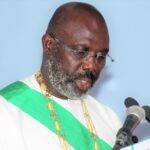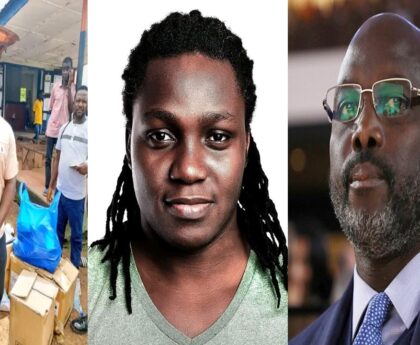As Liberia gears up for a pivotal presidential election, the political landscape is marred by a series of personal attacks that could potentially sway the outcome. President George Weah, seeking re-election, has found himself entangled in controversy as his campaign resorts to targeting the age and health of his opponent, Ambassador Joseph N. Boakai, the former Vice President and Standard Bearer of the Unity Party (UP) Rescue Mission/Train.
In a political climate already fraught with economic challenges and governance concerns, the decision to launch personal attacks against Amb. Joseph Nyumah Boakai raises questions about the viability and ethics of President George Manneh Weah’s re-election strategy. Critics argue that such tactics divert attention from substantive issues and hinder the democratic process by focusing on personal attributes rather than policy proposals and governance records.
One of the primary targets of these attacks has been Amb. Joseph Nyumah Boakai’s age. President Gearge Manneh Weah’s campaign has attempted to frame his opponent as out of touch and unfit for the demands of the presidency due to his senior years. However, this approach risks alienating a significant portion of the electorate who may view such tactics as ageism and an attempt to distract from addressing the real issues facing Liberia.
Additionally, President George Manneh Weah’s campaign has not spared Amb. Joseph Nyumah Boakai’s health, further intensifying the contentious nature of the electoral race. The insinuations regarding Amb. Joseph Nyumah Boakai’s well-being not only risk tarnishing the political discourse but may also backfire, as voters may perceive such attacks as a desperate attempt to discredit a credible opponent rather than engaging in constructive dialogue.
The personal attacks have not gone unnoticed by the public, with some voters expressing dissatisfaction with the tone of the campaign. Liberia, like any thriving democracy, deserves a campaign focused on the merits of each candidate’s vision, policies, and ability to address the pressing challenges the nation faces.
Amb. Joseph Nyumah Boakai’s response to the personal attacks has been measured, with a focus on issues and a commitment to running a clean and issues-based campaign. This approach resonates with voters looking for leadership that prioritizes substance over sensationalism.
As the election draws near, the misstep toward personal attacks may ultimately influence the electorate’s perception of President George Weah and his bid for re-election. Voters often value campaigns that rise above mudslinging and concentrate on providing clear visions for the nation’s future. The fallout from the use of personal attacks could shape the legacy of President George Manneh Weah’s candidacy, determining whether voters view it as a constructive effort to lead Liberia or a divisive strategy that undermines the democratic process.
In the end, the choice between candidates should hinge on their policies, track records, and the ability to address the complex challenges Liberia faces, rather than personal attacks that detract from the essence of a healthy democratic debate.




